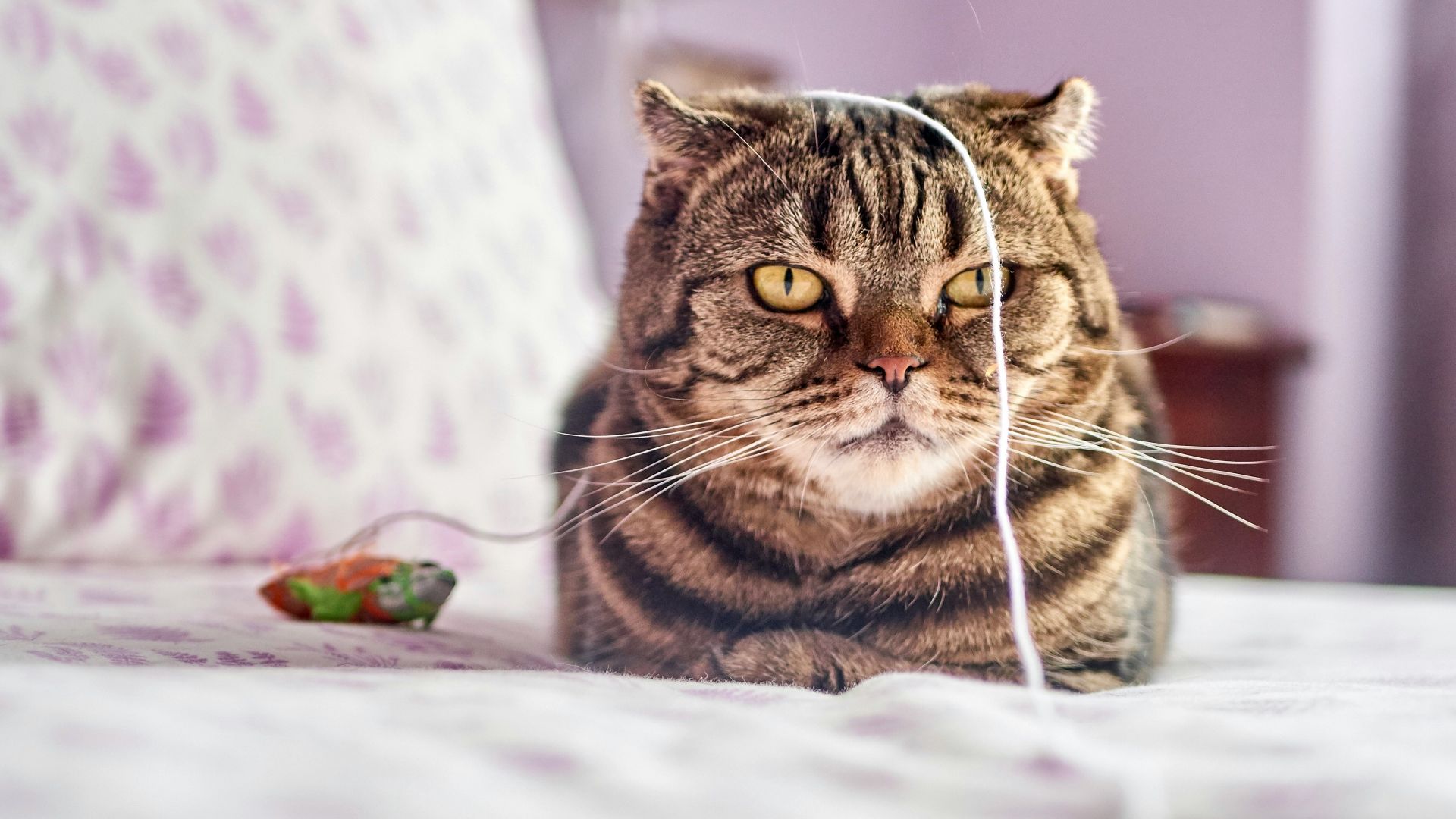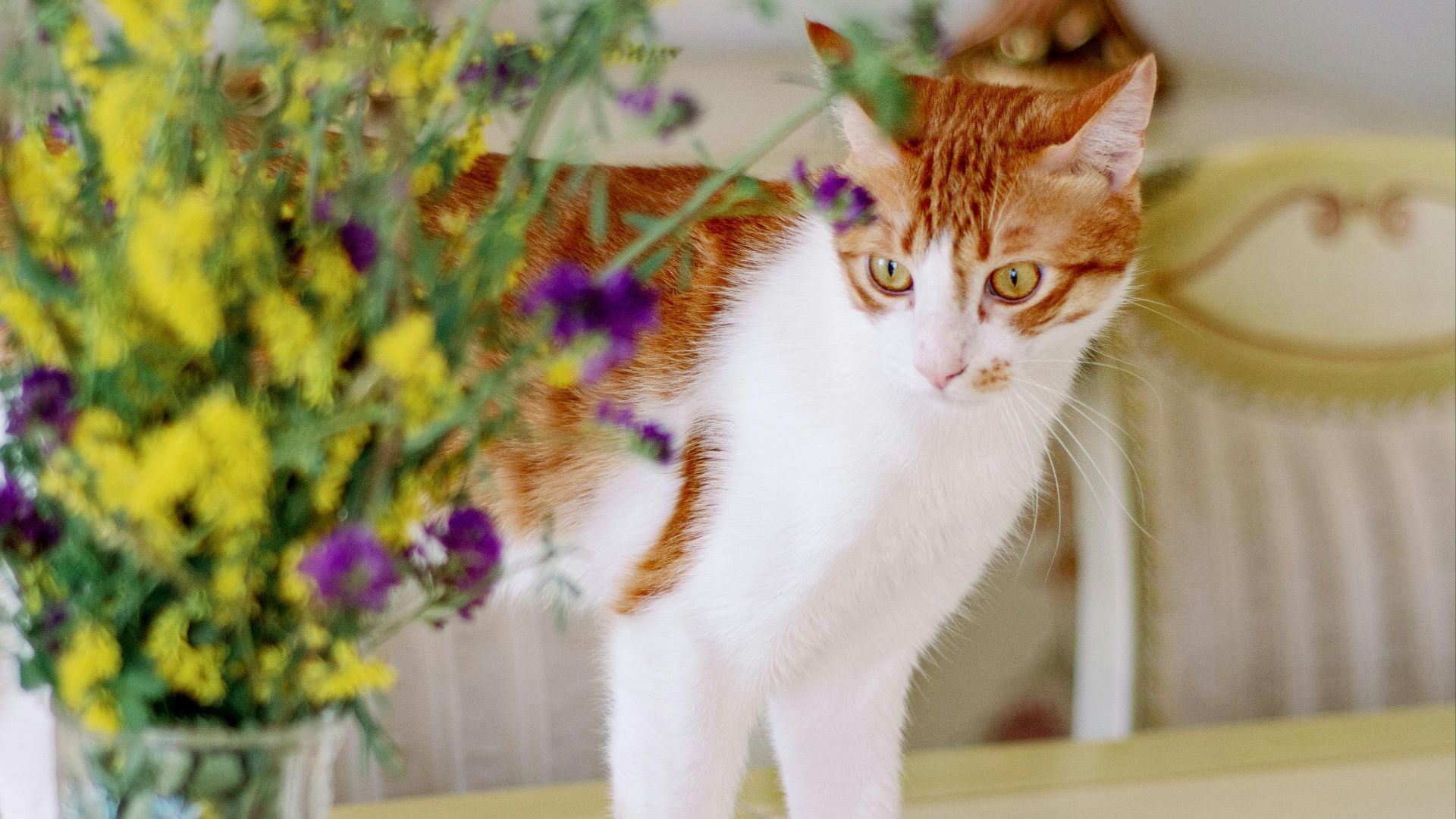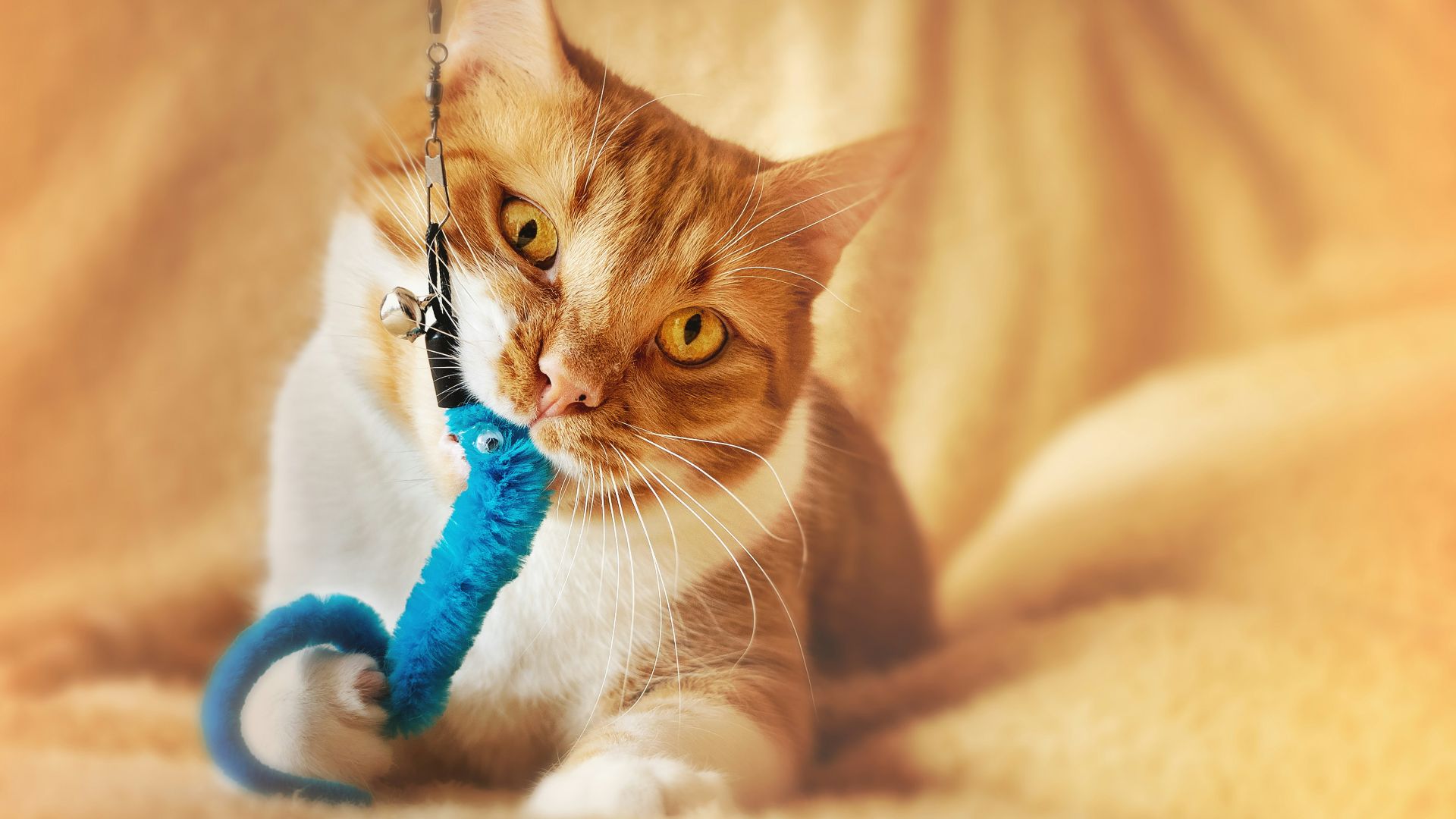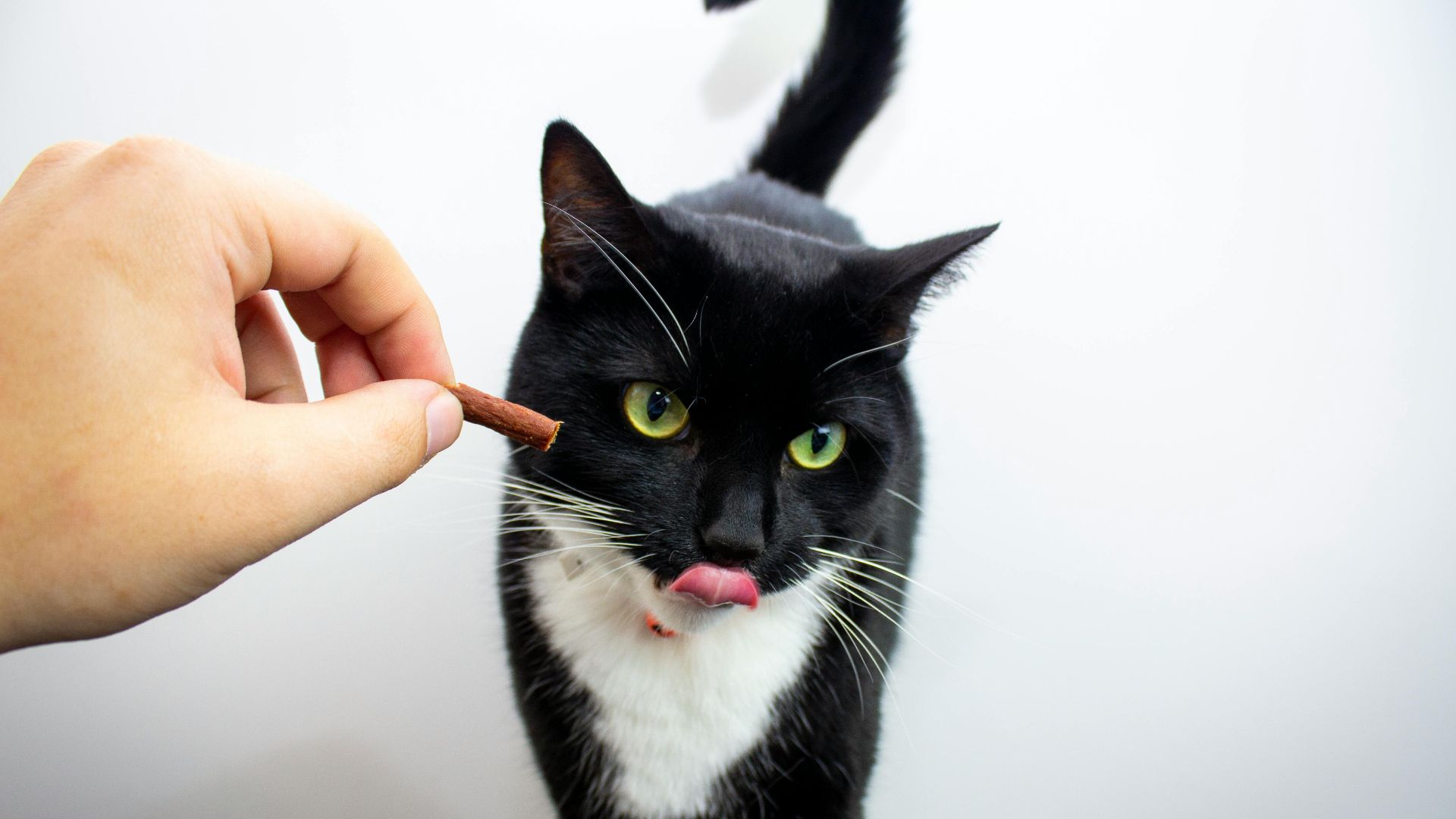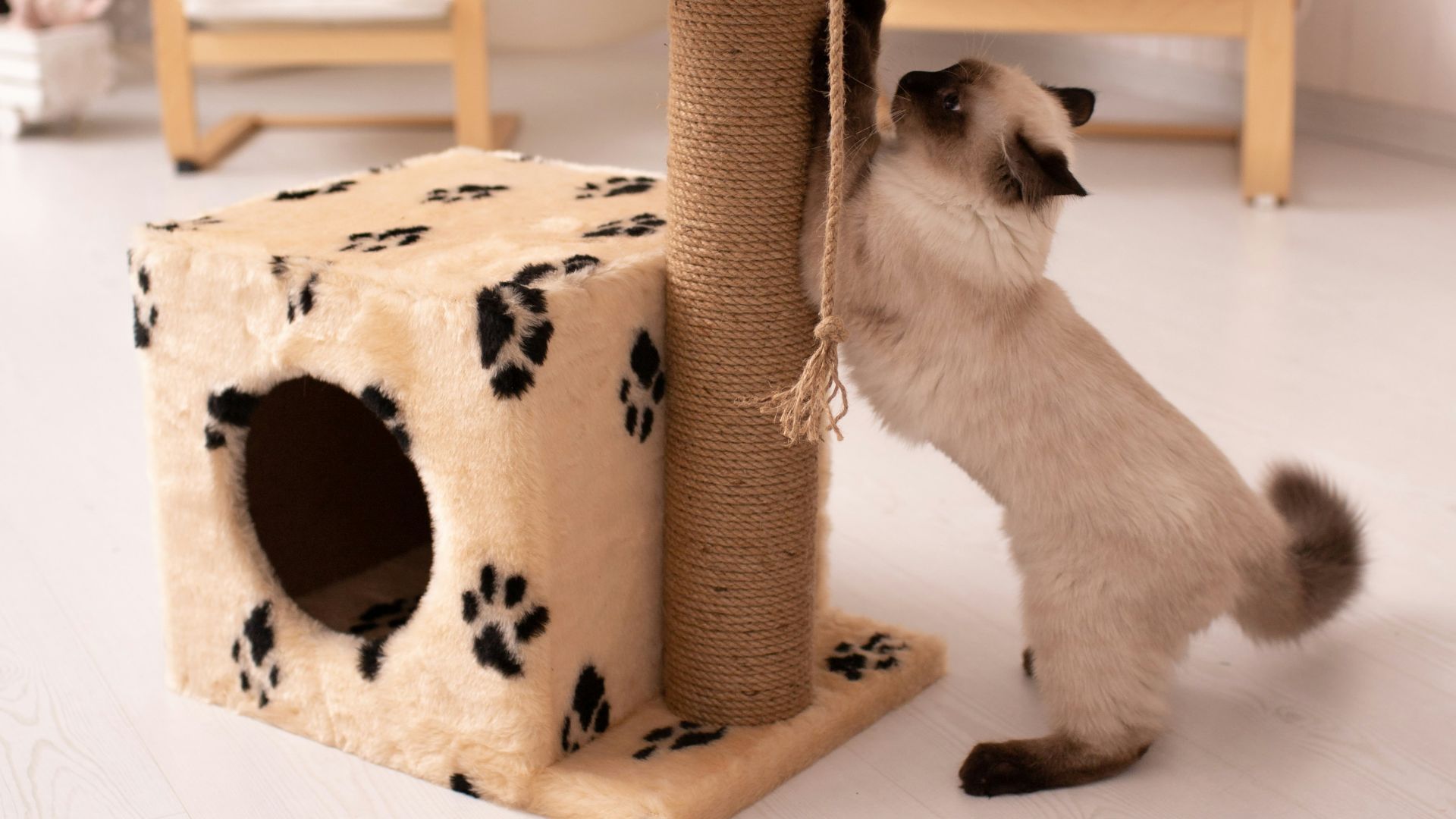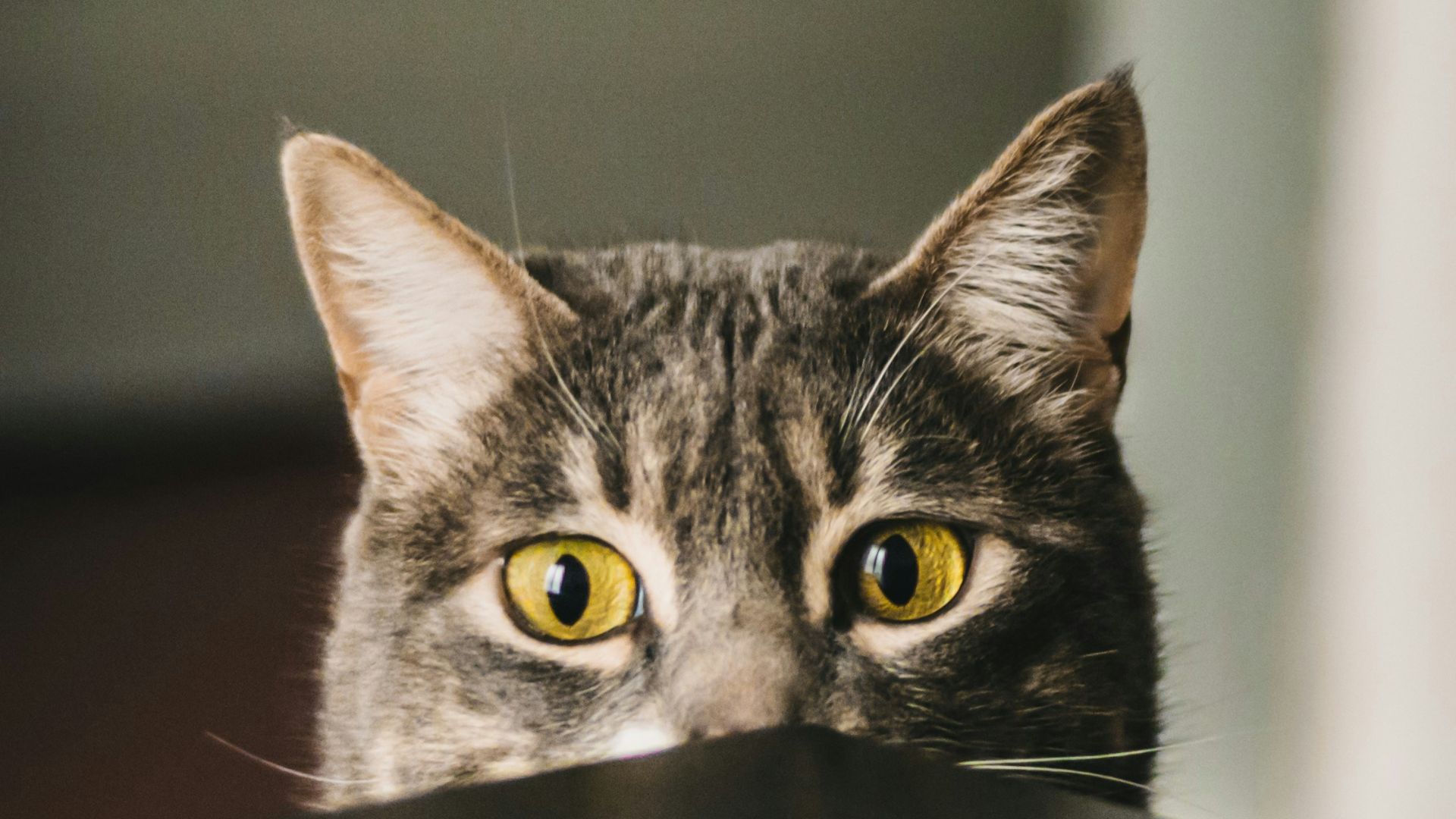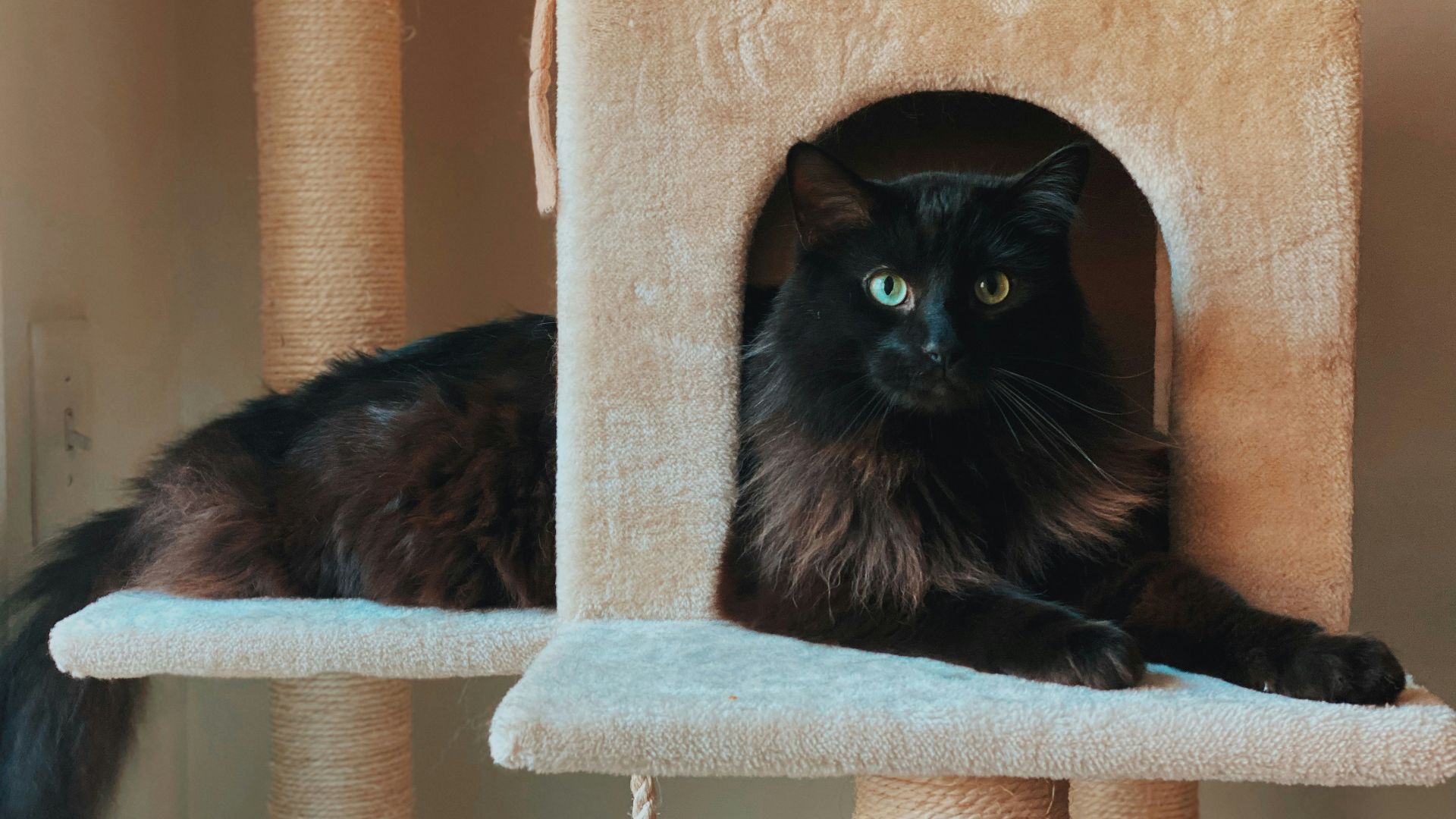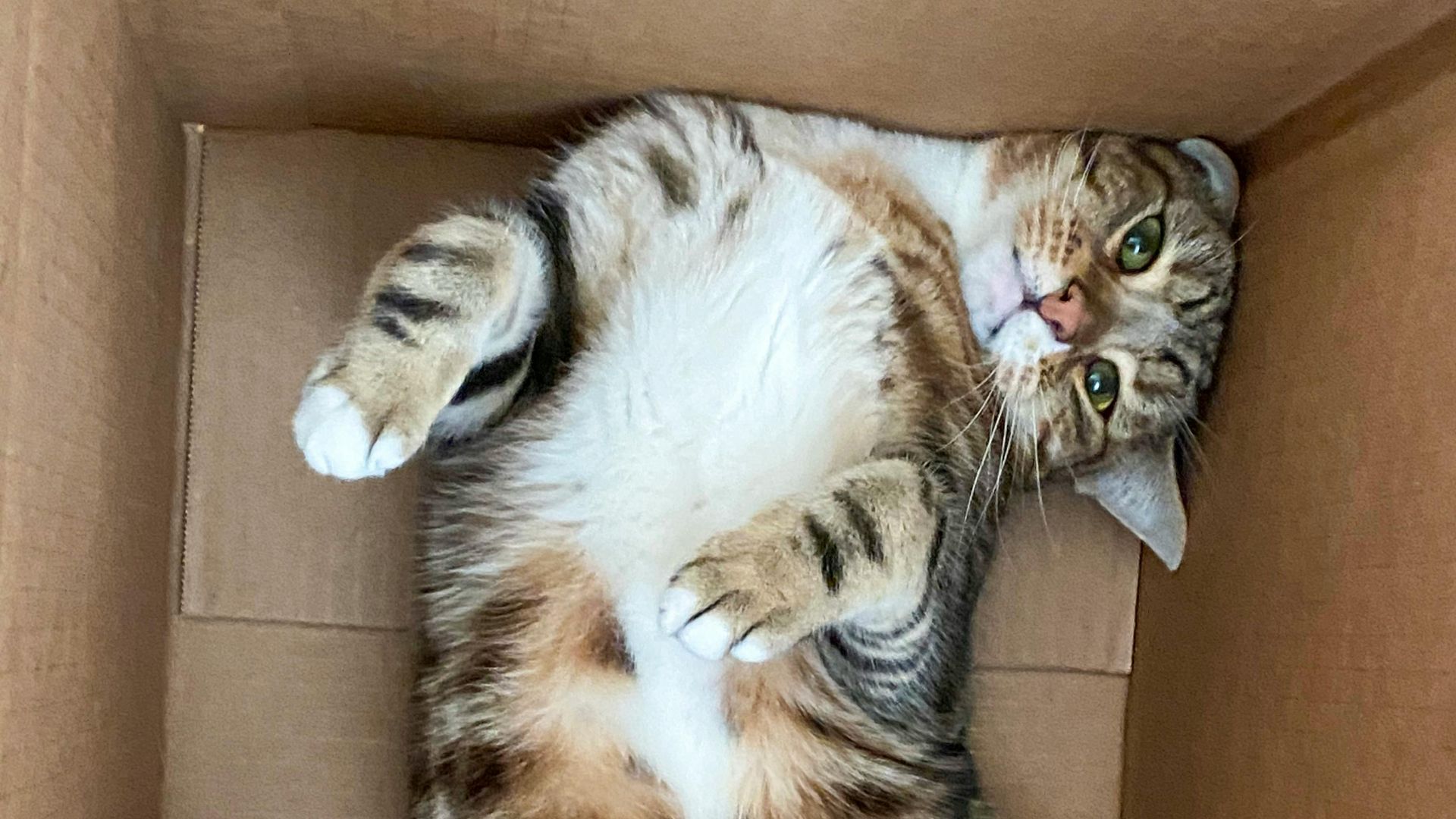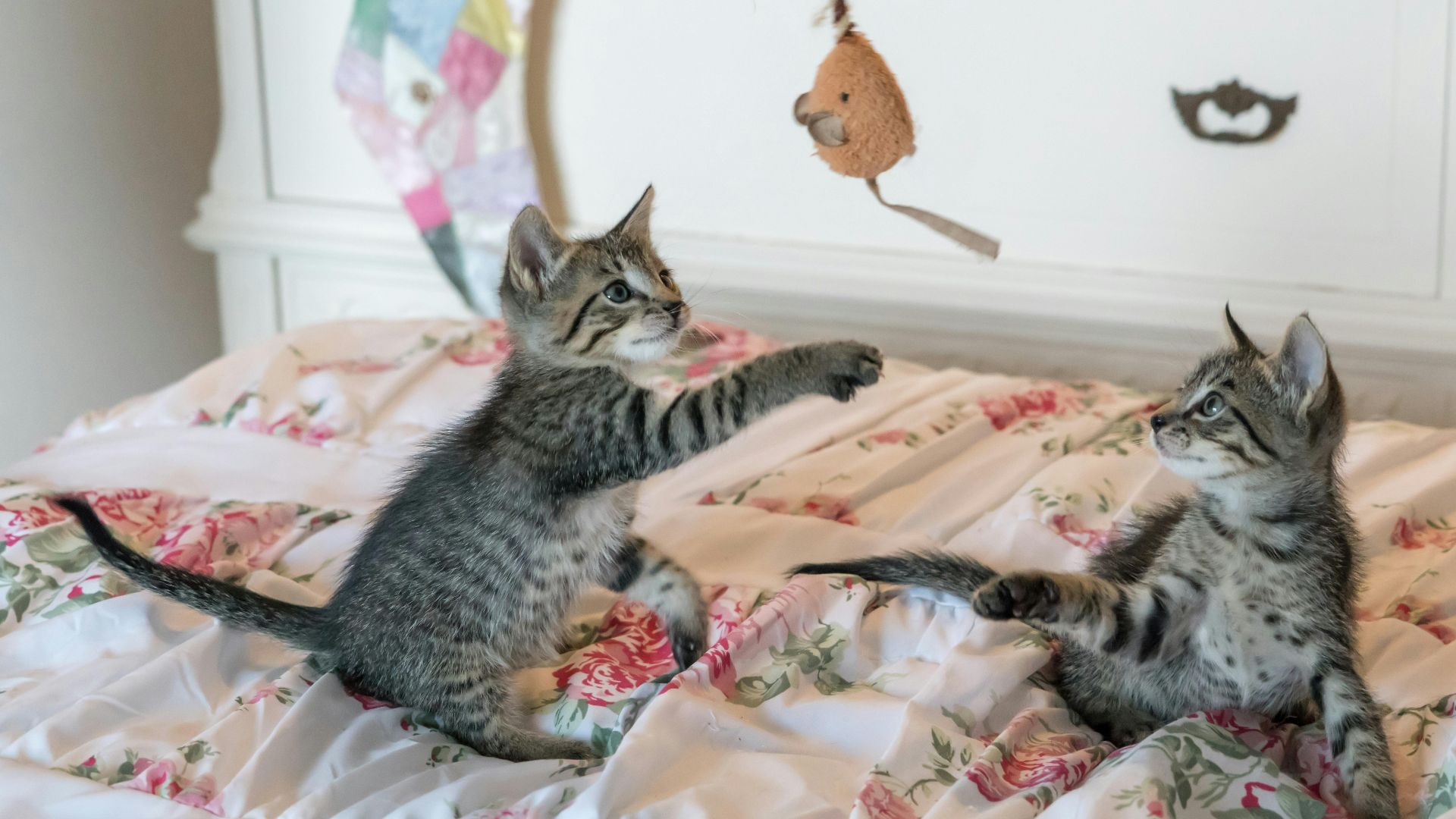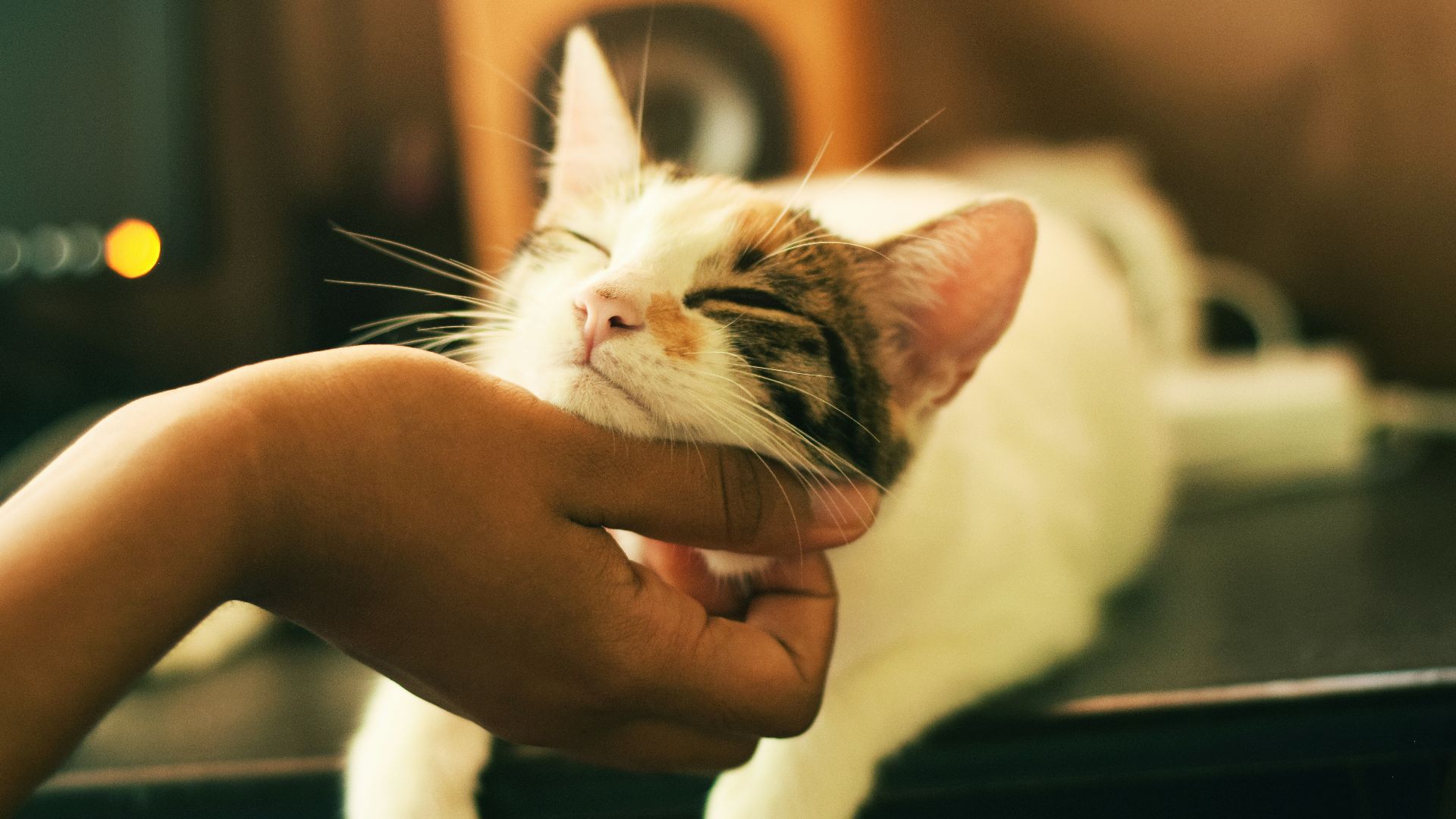Avoid the Cat-astrophe Of Feline Boredom
Cats are pretty mellow creatures. They lounge in the sun, scream for food, and always find their way on the counter during dinnertime—but they’re our best friends and deserve mental stimulation! Let’s dive into some signs your furry friend needs a little TLC and what you can do about it.
1. Excessive Grooming
We all know cats meticulously groom themselves, but there’s a difference between their everyday routine and excessive licking. Bored cats might groom themselves to the point of bald patches or even skin irritation.
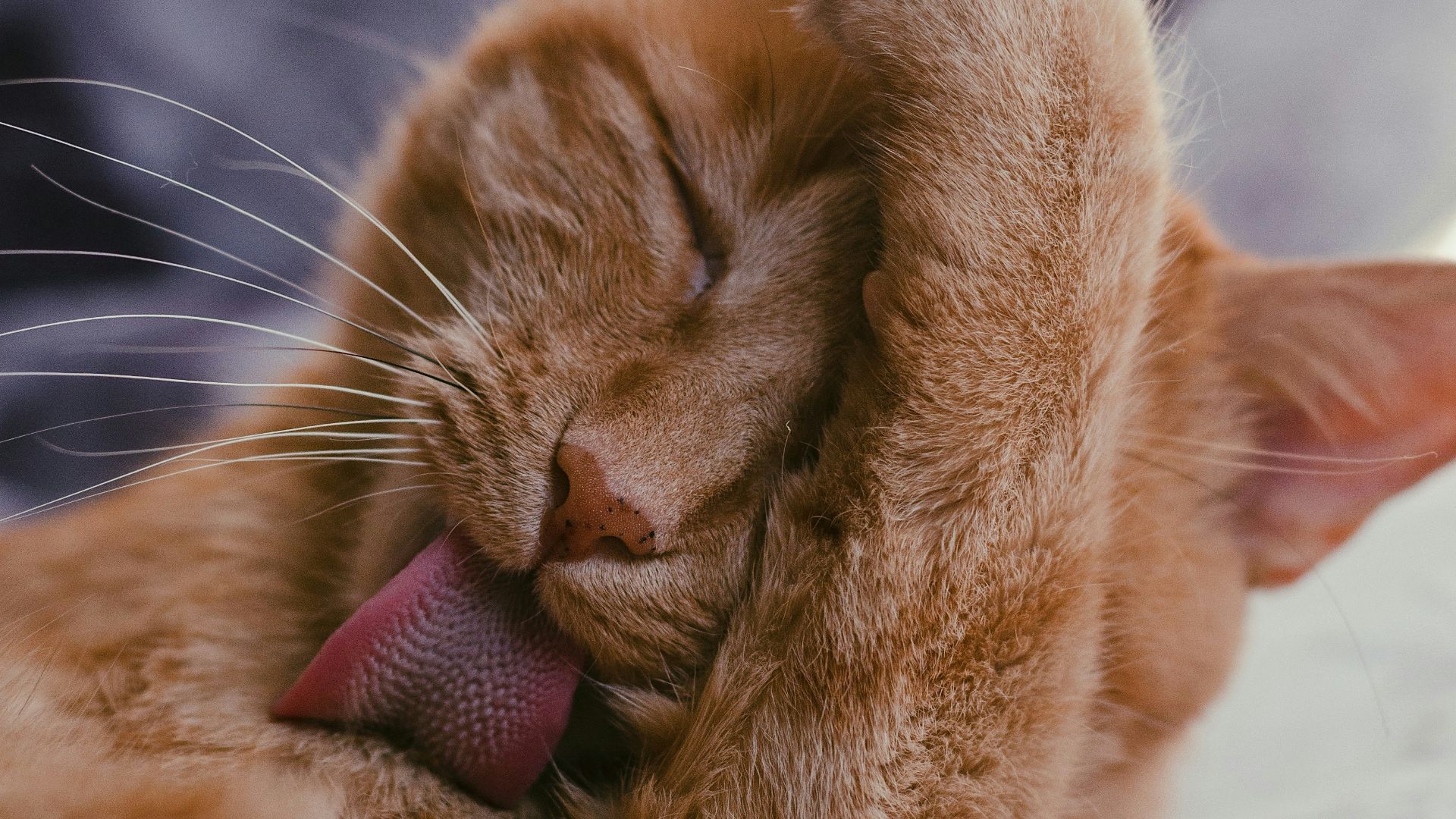 Valeria Strogoteanu on Unsplash
Valeria Strogoteanu on Unsplash
2. Constant Meowing
It’s sometimes hard to tell why our cats meow. Let’s be honest—they vocalize throughout the day for seemingly no reason (or because we haven’t fed them two dinners). But you know your pet better than anyone and it’s easy to spot the difference between a simple meow and constant noise.
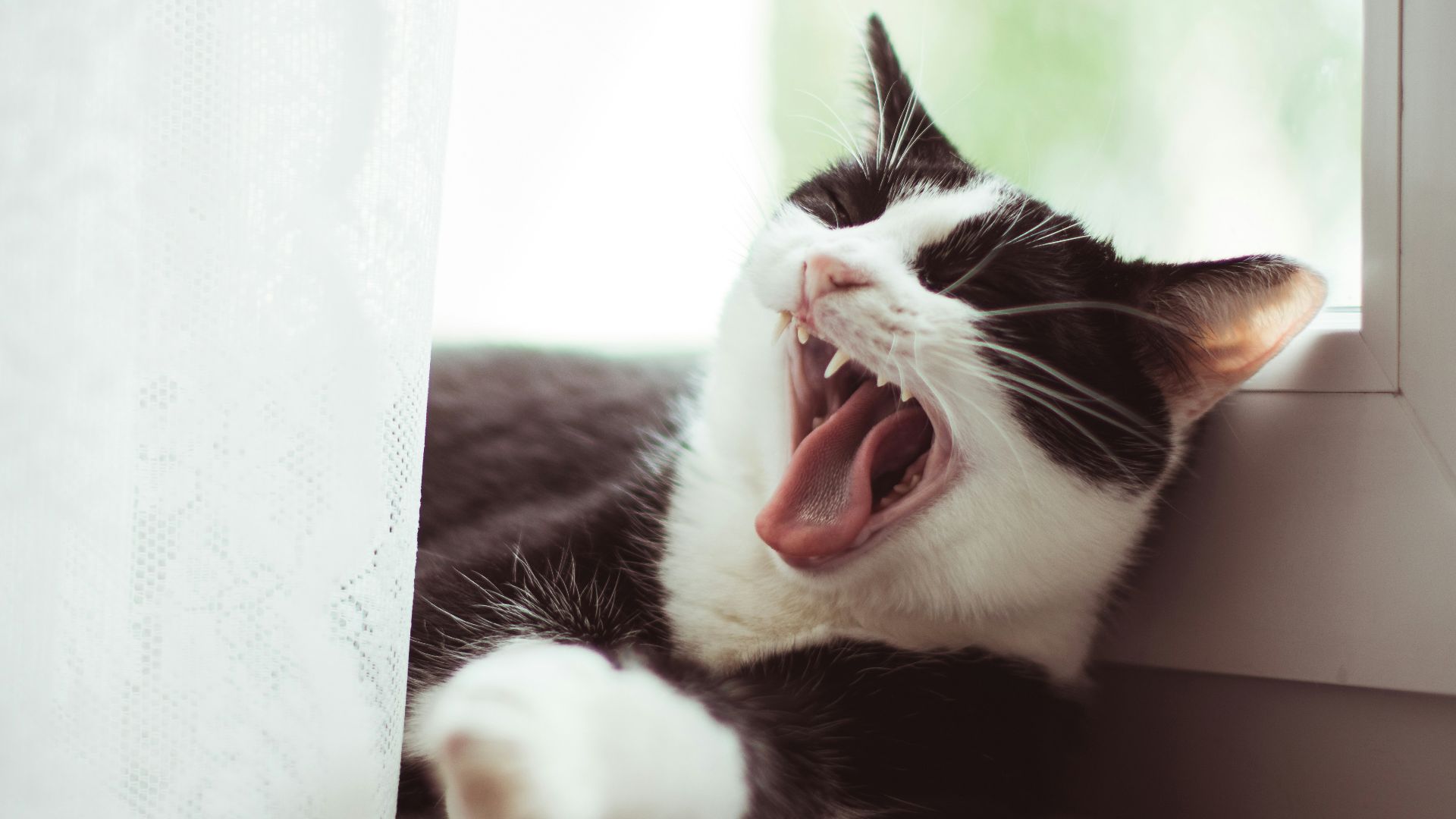 Paweł Adamczak janusze_zycia on Unsplash
Paweł Adamczak janusze_zycia on Unsplash
3. Oversleeping
Cats do what everyone else does when they’re bored: sleep! This symptom can be harder to spot since most cats sleep anywhere from 12-16 hours a day, but anything more than that could be a sign that they need mental stimulation.
4. Destructive Behavior
We all know cats can be troublemakers. Whether it’s cramming themselves into a drawer or knocking down a water glass, our furry friends like to cause trouble. However, simple mischief isn’t the same as ripping up carpets, scratching the sofa, or spraying. In those cases, your cat likely needs something to do.
5. They Don’t Want Toys
It’s easy to assume our cats can fend for themselves. After all, they have an abundance of toys to play with and crevices to explore—but a truly bored cat will lose interest in playtime. If you notice indifference to their toys, it’s often a sign you need to step in.
6. Overeating
Cats and people suffer a lot of the same symptoms, namely overeating when they’re bored. Pay attention to your pet’s waistline. If they’ve added a few pounds, it could be a sign that they’re indulging more than they should. On the other hand, some cats lose their appetite altogether.
7. Aggression Towards Other Pets
Is your cat stalking other pets around the house? Do they start scraps with their brothers and sisters? If so, you likely have a bored kitty on your hands. With nothing else to do, some cats show more aggression to get out their energy.
8. Inactivity
Bored cats don’t know what to do with themselves—and sometimes their solution is to do nothing at all. Keep an eye on their behavior. Have they lost their sense of curiosity? Do they only get up to go to the food dish? Those signs are good indicators that your cat needs mental activity.
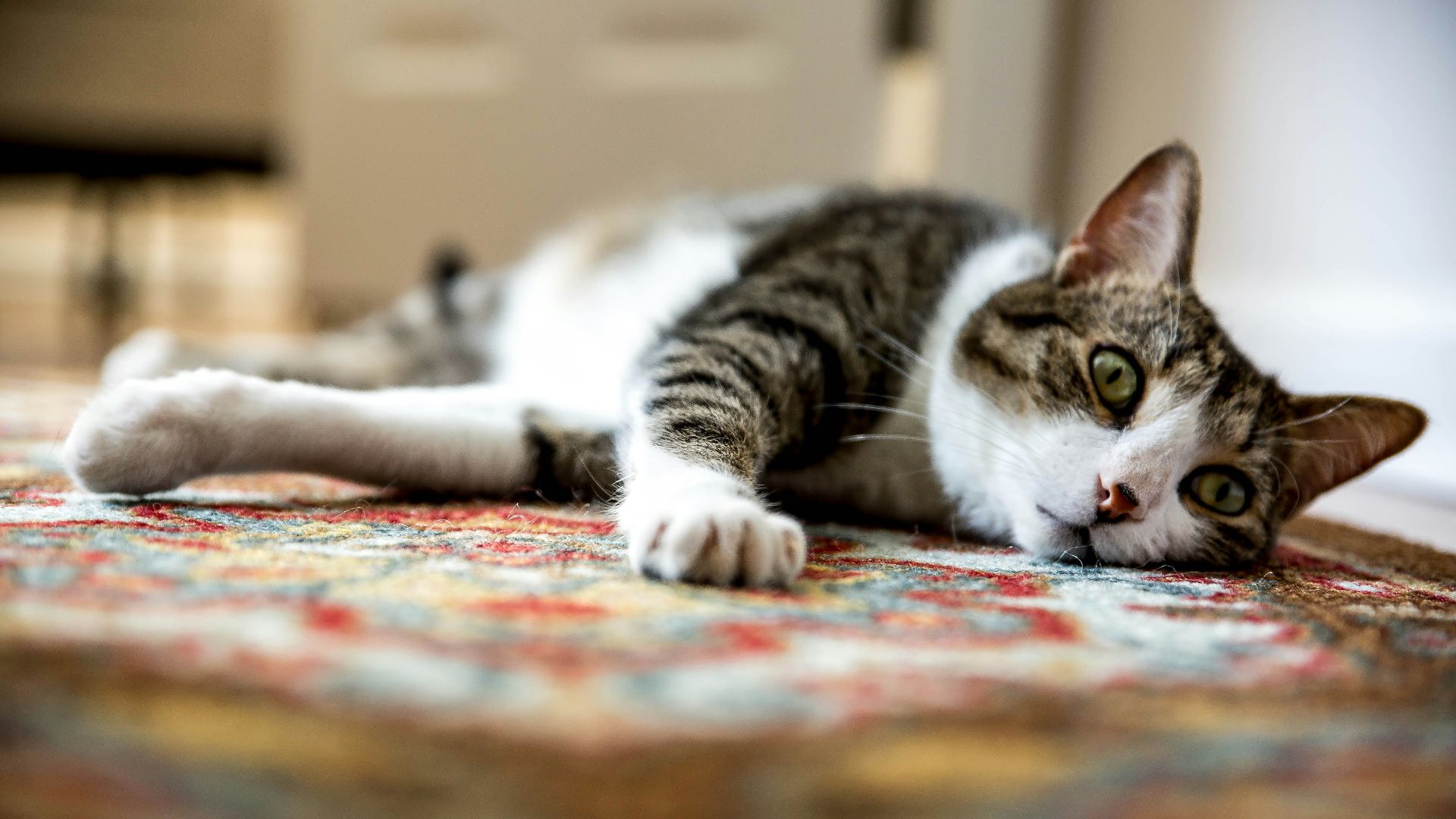 Scott Serhat Duygun on Unsplash
Scott Serhat Duygun on Unsplash
9. Pacing Around the House
Of course, not every bored cat lounges around all day. Some pace mindlessly around the house. Paired with other common behaviors like excessive vocalization and overeating, their meandering should alert you to their boredom.
10. They Beg for Attention
You might think it’s cute for your kitty to curl on your lap or demand more pets (and it is), but those are actually big signs of boredom. Their attention-seeking can get downright annoying without enough stimulation, so take heed of their signals.
Now that we know what a bored cat looks like, let’s dive into a few simple remedies that relieve both your headaches!
1. Get the Right Toys
Grab toys that stimulate your cat’s instincts; interactive playtime gets them jumping, chasing, and exercising their brain long enough to get tuckered out. Rotate toys to keep things new and exciting for them and don’t forget to buy duplicates of their favorites!
2. Hide Treats in the House
They might not look like it, but our cats are hunters at heart. That’s exactly why they’ll love treasure hunts for treats! Start by hiding them in open areas and gradually increase the difficulty—your kitty will appreciate the brain game and their reward.
3. Outdoor Stimulation
While it’s ill-advised to let your cat roam the neighborhood, they can still pounce around outside. Slip them into a lead and let them explore the backyard. They’ll have plenty to do and see, which provides all the stimulation they need.
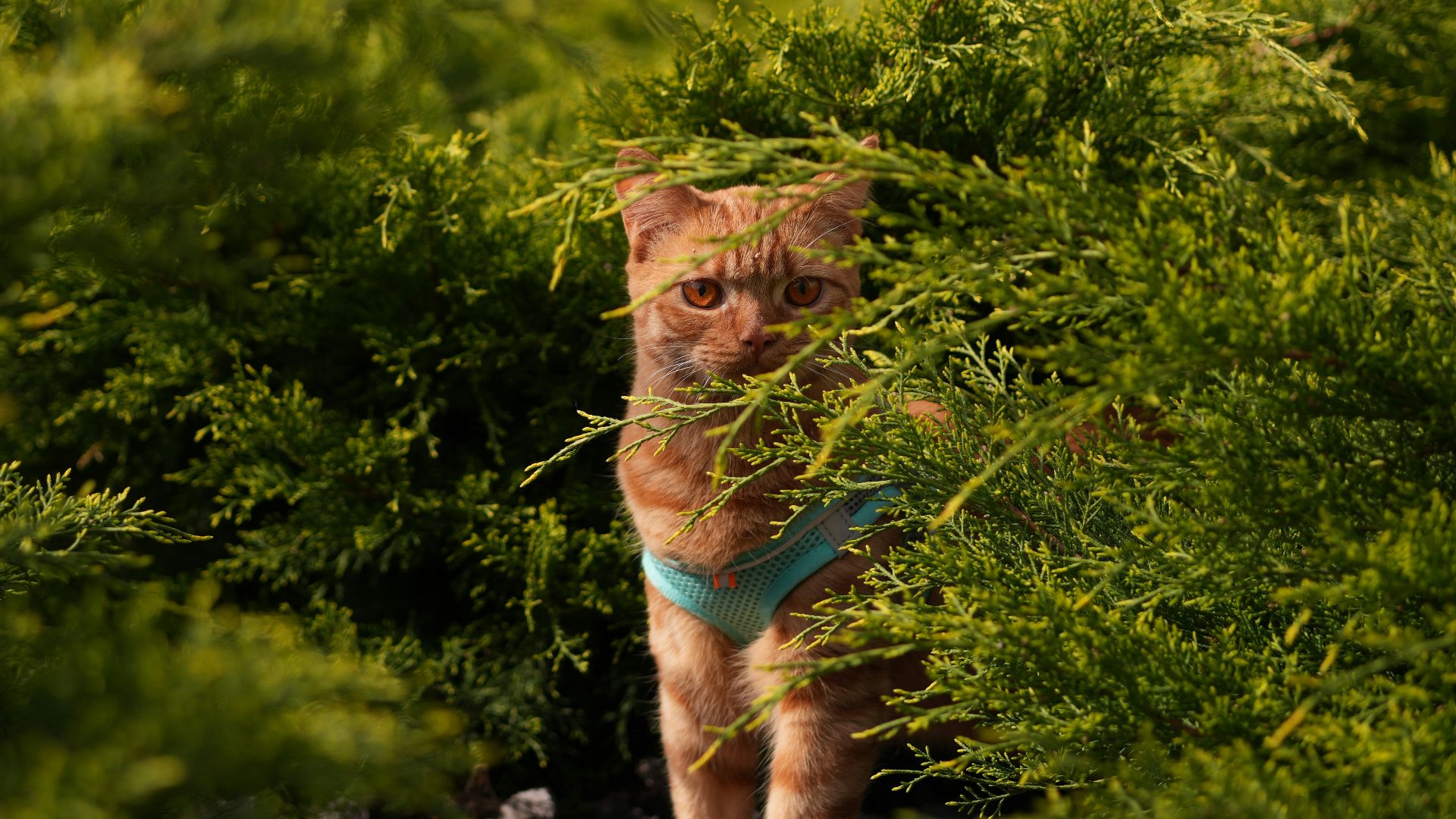 Volodymyr Dobrovolskyy on Unsplash
Volodymyr Dobrovolskyy on Unsplash
4. Stimulate Their Needs
Invest in a good scratching post to keep cats away from your furniture. Not all are made equal either, so even if you have one at home, your furball may be itching for a new one. Speak with a pet shop pro to learn more about different kinds and which one makes the most sense for your cat.
5. Teach Them a New Trick
Dogs aren’t the only animals that can learn new tricks! Our cats are far more clever than we give them credit for, which means you can always train them to learn basic commands. With the right encouragement, your kitty can learn how to sit or even shake a paw.
6. Get Some Catnip
We all know felines go nuts for catnip—so it might be time to crack open the bag! Just remember that catnip isn’t an everyday treat and is best provided a few times a week. Either way, they’ll appreciate the sprinkle of leaves.
7. Invest in a Cat Tree
Cats like to climb and explore their surroundings; a good cat tree keeps them on their turf instead of causing trouble at home. Not only are they privy to climbing, but they can also enjoy a peaceful nap in the sun or scout the neighborhood.
8. Box Forts
“If it fits, I sits,” or so the old adage goes! Cats use their imaginations to squeeze themself into vases or dart in and out of boxes, so why not cut to the chase and provide them with a sturdy cardboard fort? You’d be surprised just how much entertainment they get.
9. Maintain a Schedule
Schedule playtime for you and your cat. Your pet can get a little stressed without a routine, and when you build time for games, you give them something to look forward to. It’s also nice to know you have a little break coming up too!
10. Pay Attention to Them
Don’t just assume your cat will thrive on its own. They deserve attention just like any other pet and won’t be as fussy when you take the initiative to pet them, play with them, or give them activities!





